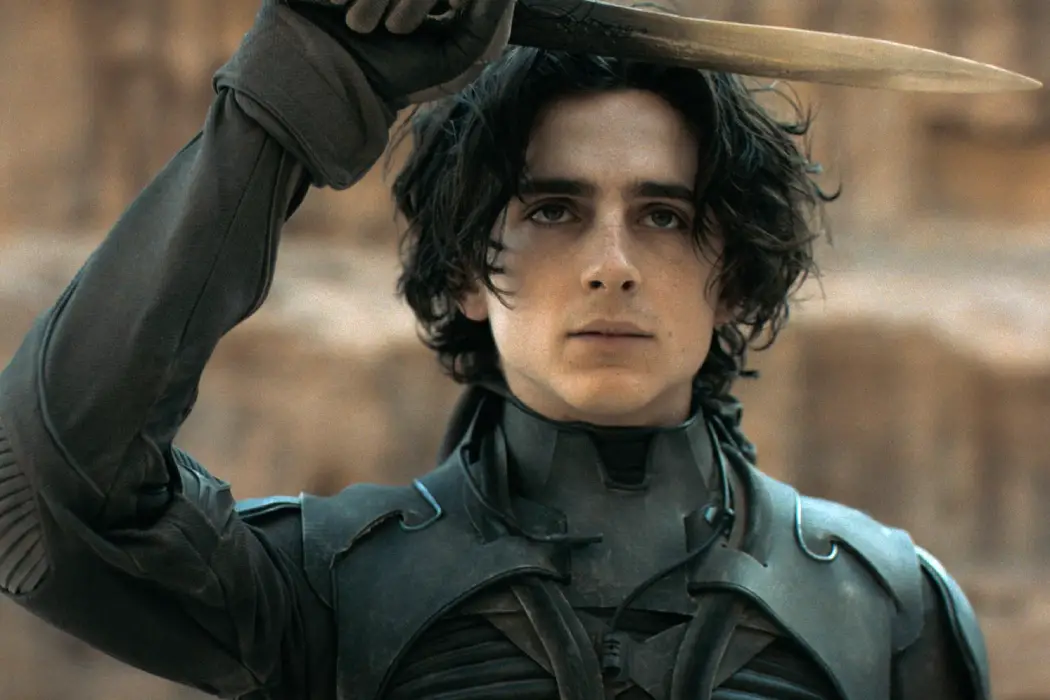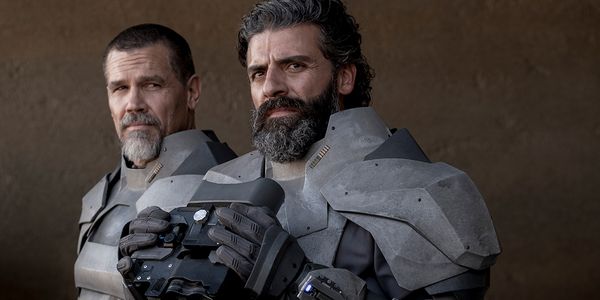TIFF 2021: DUNE

Wilson is a cinema enthusiast based out of Toronto, Canada.…
In terms of size and scale, will there be any other film this calendar year that feels as big as Denis Villeneuve‘s Dune? The answer to this rhetorical question is likely a resounding no, as this monster of a cinematic experience is as large and epic as one could hope for. Like many other films that have pushed their release dates back due to the COVID-19 pandemic, Dune was eager to make its mark when the theatrical experience was once again considered kosher amongst the general population.
And although it’s still questionable whether or not the world is at that stage yet, and Warner Brothers’ plan for a concurrent HBO Max digital release is still in place, there’s no question that this is a film that should be experienced on the big screen. But despite such a promising appeal to the cinematic experience, Dune ultimately falls short of meeting some of those expectations given its reliance on building towards a subsequent installment. The film leaves audiences wanting more, which is a signposting for both Villeneuve‘s masterful filmmaking capacities and the lack of contained narrative closure one would expect from such an epic cinematic journey.

Based on the popular science fiction novel of the same name by Frank Herbert, Dune was initially produced into a feature film by David Lynch in 1984. Although that film has garnered a cult following over the years, it was a commercial disaster and scored poorly with critics as well. Villeneuve‘s attempt at Dune essentially follows the same story, which sees Paul Atreides (Timothée Chalamet), the heir apparent of a noble family that has been entrusted with controlling the desert planet Arrakis. His father, Leo Atreides (Oscar Isaac), relishes in the planet’s richness in ‘melange’, one of the most valuable trade substances in the galaxy. Paul is also the son of Lady Jessica (Rebecca Ferguson), who is a part of the Bene Gesserit, a group that has permeated over the years using their supernatural abilities.
As the noble family arrives on Arrakis, they are met with resistance and betrayal from the ruling empire that first afforded them this opportunity. The film features a cast that also includes Josh Brolin, Stellan Skarsgård, Dave Bautista, Stephen McKinley Henderson, Zendaya, David Dastmalchian, Chang Chen, Sharon Duncan-Brewster, Charlotte Rampling, Jason Momoa, and Javier Bardem (among others). There really isn’t a sour note in this strong ensemble cast, who help provide reverence to source material that, as with any science fiction story, can be difficult to digest at times. Chalamet in particular brings a grounded sense of relatability as the film’s protagonist and moral anchor, making it more digestible for audiences to take in this overly imaginative science fiction tale.
A masterclass in science fiction world-building
When it comes to the large worlds that are created in coveted science fiction and fantasy novels, the advantage of cinema is its ability to transform those exquisitely detailed words into audiovisual experiences that heighten our sense of imagination. The extended versions (and to be fair, even the theatrical cuts) of the Lord of the Rings and Hobbit films are prime examples of this, with Peter Jackson creating breathtaking moving portraits of J. R. R. Tolkien’s expansive vision. And although I’ve never read Herbert’s original Dune novels, one can only imagine that Villeneuve has executed a visionary illustration of his planetary narrative. The expansive world-building that takes place in Dune is simply breathtaking. Similar to the picturesque sensibilities he employed in Blade Runner 2049, every frame of Dune is a pleasure to observe. Greig Fraser is excellent in creating a world that feels desolate while maintaining a sense of richness to its quality. The visual effects and large-scale battle scenes are full of details that are certainly indicative of the level of detail and craftsmanship afforded to this monster-sized epic.

And as expected, the searing score by Hans Zimmer helps captivate audiences from beginning to end, although it certainly isn’t as invasive as some of his usual work. The score actually takes more of a backseat, with hints of recurring motifs and sounds, as opposed to emotionally dense themes that Zimmer is so capable of creating. Instead, Villeneuve enchants audiences through a balanced act that affords equal responsibility to all aspects of the film. Not one single element overtakes any other, and for a film of this size, this helps provide space to take in all the many details. It’s actually a relatively restrained approach to filmmaking, despite the large canvas, and is indicative of both the maturity and ingenuity of Villeneuve.
Leaving audiences thirsty for more
The emotional and overall narrative experience of Dune traverses multiple planes that ultimately culminates in a setup for a follow-up film. This is by no means a spoiler as Villeneuve has been vocal about his plans for a sequel that would focus on Zendaya’s Chani. The problem is, the film itself essentially hints at this follow-up story as part of its current narrative payout. But when Paul finally reaches the mysterious Fremen group of beings towards the film’s third act, the promised story arc isn’t really addressed at all and is left as a setup for a sequel instead. This would be fine if Dune‘s finale packs in a coherent narrative finish, but it, unfortunately, doesn’t. It ends off with a battle sequence that is far less climactic and emotionally satisfying than those that came before it, which feels like a letdown given the scale of the story itself.

The technical ascents of Dune never dissipate, but the dramatic narrative that exudes peak science-fiction energy seems to dwindle toward the finish line. While the ending itself is far from a mid- or end-credit teaser scene, its collective packaging does feel like a teaser for a follow-up that promises to be more gripping than what has been shown so far. There are more satisfying ways that Villeneuve, Jon Spaihts, and Eric Roth could’ve ended off the film with the same degree of sequel-teasing, which would’ve elevated Dune as a true masterpiece in large-scale science fiction filmmaking. But in the end, we’re left feeling a bit empty-handed, with a sense that a sequel isn’t just desirable, but essential to fully experiencing this particular storytelling vision.
Final Thoughts
As a science fiction film, Dune is bewilderingly ambitious in terms of scope and scale, despite still feeling a bit underwhelming by the time credits roll. Villeneuve ultimately set his eyes on more than a single film, and given the promising premise set forth by this first installment, I surely hope that Warner Brothers gives the official green light so that his full vision can be realized. Dune is honestly marvelous to experience and certainly makes a great case for why the theatrical experience can never be truly replaced. The fact that it fails to fully stand on its own points to both its deficiency as a self-contained film, and the urgency to one day experience its completed journey with an anticipated sequel. For the sake of ensuring that such a sequel is made, audiences should make an effort to see this imperfect, yet beautifully crafted science fiction epic.
Does Villeneuve’s Dune live up to the hype of the book? Should there be a sequel? Let us know in the comments below.
Dune premiered at the 2021 Toronto International Film Festival on September 11, 2021.
Watch Dune
Does content like this matter to you?
Become a Member and support film journalism. Unlock access to all of Film Inquiry`s great articles. Join a community of like-minded readers who are passionate about cinema - get access to our private members Network, give back to independent filmmakers, and more.
Wilson is a cinema enthusiast based out of Toronto, Canada. He escapes from his day job by writing random thoughts about cinema on the internet. Although he has a longstanding penchant for Hong Kong cinema, he considers himself to be an advocate for Asian cinema in general. He has been attending the Toronto International Film Festival every year since 2005, and more of his work can be found on his website: www.wilson-kwong.com.













